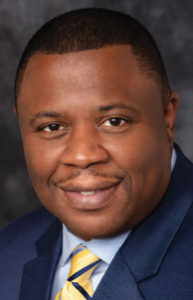
By Vaughn Wilson
It’s been fascinating to watch the sudden flood of outside voices weighing in on the selection of Marva Johnson as the next president of Florida A&M University. Where were many of these voices during FAMU’s highs and lows—when the university soared, or when it stumbled and needed support?
I typically approach politically charged situations with caution. Often, these events are layered with nuance, and unless all the facts are on the table, jumping in prematurely can lead to confusion more than clarity.
With Dr. Larry Robinson stepping down as FAMU president, the door opened for something that has been gradually unfolding across Florida’s State University System. The governor, the Florida Department of Education, and the Board of Governors have all positioned individuals they believe align with their broader objectives. This appears to be part of a deliberate and calculated transformation of higher education in the state.
The appointment and confirmation of Johnson didn’t happen in isolation—it was another key move in this broader realignment. For those who observe such developments closely, this moment was not a surprise but the latest development in a long-term strategy.
As I processed this, I had to set emotions aside and take a clear-eyed view of the situation. No, this wasn’t how I hoped things would unfold. But the reality is, the first word in FAMU’s name is “Florida.” It’s a public institution, owned and governed by the State of Florida. Over the years, many of us have felt like we owned it—through our pride, our loyalty, and our unwavering defense of it, especially when we believed the state failed to support it. We protected it like family.
That protective spirit was perhaps best captured by the late Rev. Moses G. Miles, who famously said:
“…if any one—be he or she great or small, governor or legislator; administrator or faculty, staff or student, alumni, friend or foe, endeavor to do anything to keep FAMU from moving upwardly and onwardly toward achieving true greatness, let his right hand forget its cunning and his tongue cleave to the roof of his mouth for FAMU must live on!”
That quote is more than words—it symbolizes the resolve that has kept FAMUans pushing the university forward, even when state support lagged. In those moments when it felt like the world had forgotten FAMU, we lit the way forward ourselves.
Through the decades, some of our university’s greatest progress came under presidents who fought fiercely for its survival. Leaders like Dr. J.R.E. Lee and Dr. Walter Smith resisted attempts to marginalize the university. In the civil rights era, presidents such as Dr. George Gore and Dr. B.L. Perry ensured that FAMU remained a safe and nurturing place for students. Others, like Dr. Frederick Humphries and Dr. Larry Robinson, turned limited resources into platforms for excellence.
No university is perfect. No president is perfect. That’s true of FAMU and it’s certainly true across Florida’s public institutions.
Still, throughout the years, there’s been a sense that the people chosen to lead FAMU understood its purpose. There was a connection—rooted in empathy, experience, and cultural understanding. For many, that’s what seems to be missing now. Most FAMUans don’t know Marva Johnson, and even among those familiar with her résumé, there are doubts about whether she’s prepared to advocate for FAMU to the state.
She is seen by some as a state insider—someone whose existing relationships could potentially limit her ability to challenge the very system that often shortchanges FAMU. That perception lies at the heart of the unease surrounding her appointment.
So when others—especially those from outside the FAMU community—tell us we’re wrong for questioning her, it doesn’t sit well. It feels dismissive. Where were these opinions during our past struggles? What’s behind this sudden interest? When some of those outside commentaries began to surface, things were actually beginning to cool off. Ironically, those very takes reignited the conversation.
To those who are quick to criticize how FAMUans feel: don’t. Telling a community how to respond, especially one as passionate and resilient as ours, rarely goes over well. Like anyone in this country, we have the right to our own thoughts and feelings. That hasn’t changed.
As for me, I’ve thought long and hard about this moment. And now, I want to say clearly: I wish President Johnson nothing but success. For the sake of Florida A&M University, she must succeed. FAMU needs a leader who will bring every bit of her skill, experience, and network to bear for the mission of the university. We face challenges—some that have been unresolved for years—and we need leadership capable of finally meeting those head-on.

